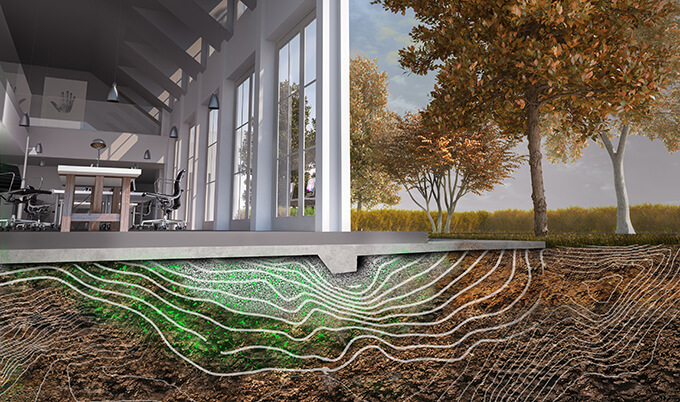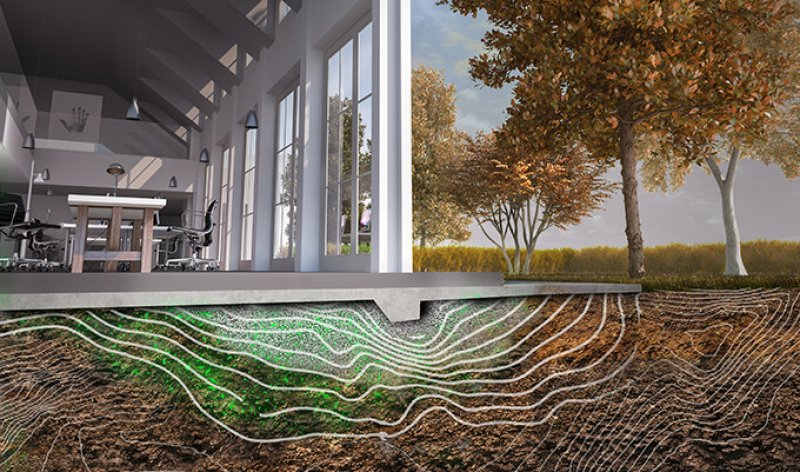A team of scientists from Newcastle and Northumbria universities, led by architecture academic Dr Martyn Dade-Robertson, are investigating how they can create a new kind of material – biocement – where engineered cells react to changes in the environment and strengthen the soil around them.
The team have identified dozens of genes in E. Coli bacteria which are regulated by pressures of 10 atm…Using this, they are modifying the bacteria to create a ‘gene circuit’ which would enable the bacteria to respond to their environment by producing ‘biocements’.

…
Dr Dade-Robertson suggests: “The application hints at new way of doing design. Imagine designing structures at the scale of a building by altering the DNA of microscopic bacteria cells. Such a technology would push well beyond the current state of the art and challenge a new generation of engineering designers to think at multiple scales from molecular to the built environment and to anticipate civil engineering with living organisms.”
The GLP aggregated and excerpted this blog/article to reflect the diversity of news, opinion, and analysis. Read full, original post: Genetically modified bacteria could create biocement































